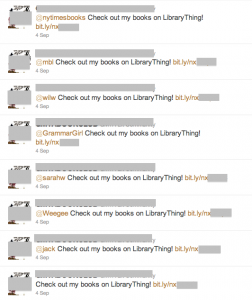My words exist in the twisted aether of the world we know. Where orcs sell potions to chem addicted elves focused only on getting the next fix. It’s a world where good guys sometimes have to do bad things and bad guys do things good for them.
It’s gray and rainy, but not the Seattle kind of rain. This is the kind of rain that melts flesh from bones.
This is the type of place where the guy waiting next to you in the subway wouldn’t think twice about slitting your throat because your coat is warmer than his.
How do you balance the macabre and the horrific with the action and frenetic pace of a spy thriller?
With careful balance.
It’s a technique I learned from Jim Butcher. For those of you unaware, you need to hunt down his writing process. It’s required reading. There will be a test.
I follow a steady, near constant rise and fall. For every action beat, we need to slow the pace down just long enough to consider the actions of what came before. Unless you’re a violent sociopath, you can’t go around slaughtering orcs or murlocs all day without a care in the world. At some point, you’re going to kill somebody’s baby.
And they’re going to be pissed. Or you’re going to go nuts.
At that point, you really need to exercise your writing muscles. For every action, there’s an equal and excruciating reaction. Since we write in fiction, emotions are sensationalized, maybe even sometimes heightened just to the point of dramatic effect.
I like to up the ante with each passing moment, increase the tension, increase the stakes. Make it look like things are spiraling out of control for our protagonist and then rein it in at the last possible minute.
It’s a roller coaster full of ups and downs and the highs and lows. My good guys who do bad things don’t always feel that the end justified the means. Sometimes what happens is a result of direct force applied upon him, almost to the breaking point. He might lash out and do something stupid. And then regret it for the rest of the book.
Or sometimes, that action is the defining moment of my character. Whether it appears on screen or off, if it happened, chances are it’s going to affect him in some way, shape, or form.
In Golden Hills, Jake Dollop wanders into a town when he’s so far down and out that there’s no where else to turn. In Chapter 2, he’s so damn miserable with his life that he briefly considers and tries to commit suicide.
Fortunately the gun doesn’t go off. And Jake is a changed man from that moment forward
In Beyond the Black, Sergeant Chase Montgomery is shot down while performing a rescue mission for a friend in the heart of World War III. He recovers and finds himself in a strange world. He misses his family back home, but they think he’s dead.
In Psychic, Detective Michael Wilfrey is still an emotional train wreck after a horrific mass casualty incident, it costs the man his wife, his career, and his life as he struggles with the slow poison of a scar too big to heal.
I write from inside the heads of my protagonists, sometimes the camera is so far in their head, it’s as if there’s no camera at all.
I prefer the tighter point of view because it allows me to delve much farther into the one or two characters that I follow throughout the book. You can experience their emotional highs and lows and live through their experiences.
And while all my books are almost thriller-esque with frenetic pacing, I still give the reader and the character time to think and recover.
Because without your lows, you can’t have your highs.
How do you juggle?

